You know that you have a vision problem and want to look into vision therapy, but at the high cost you want to make sure that you are choosing the best possible office so that your money goes to good use. After doing multiple consults helping people like you find vision therapy, I have it narrowed down to a science and I’m going to give you all of my secrets, are you ready?
How can you find a Vision Therapy Office with both excellent qualifications and expertise in treating your diagnosis? It is important to ask the right questions because all vision therapy offices are NOT created equal. Anyone can claim to offer vision therapy so it is important to do your research.
- Find out WHO provides the therapy.
- Check for the BEST qualifications
- Establish whether they are SPECIALIZED
- Learn if they use the LATEST technology
I will do this for you for free in an effort to help as many people as possible find vision therapy. Just fill out this form and I will send you my personal recommendations!
If you are the kind of person that wants to do your own research, I totally understand, I’m the exact same way. Keep reading for all of my secrets for finding great vision therapy offices.
First: Find Out WHO Provides the Therapy.
In general, the initial consult and progress visits are conducted by an optometrist and weekly sessions are done by a vision therapist.
The problem is that anyone can be a vision therapist. It could be a young 18 year old fresh out of high school who has never heard of therapy and is getting trained on the job or it could be a brilliantly experienced therapist with super hero abilities in fixing eye problems.
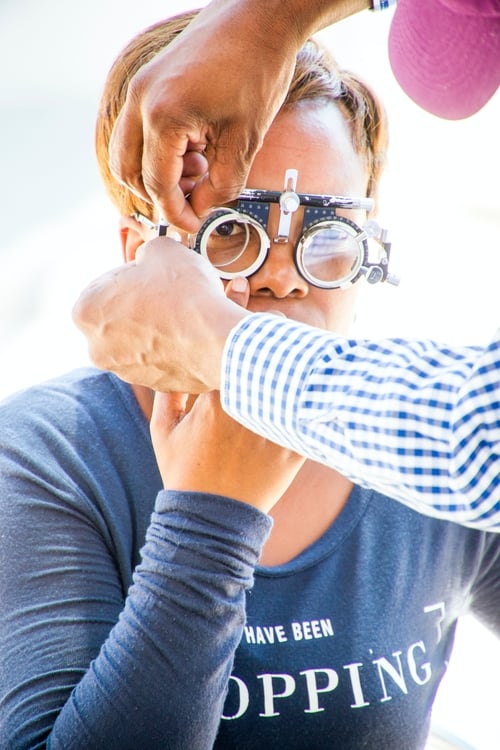
Call the office and ask who provides the therapy. If the optometrist is providing the weekly therapy, that is usually a good, but rare, sign. If it is a vision therapist, proceed to step 2.
Second: Check for the BEST Qualifications
This goes hand in hand with step one. Learn everything you can about the optometrists and vision therapists working in the office. Many times this information can be found on the website. Experience is a HUGE deal so try to find someone who has been practicing for at least 5-10 years.
For optometrists, look for the letters FCOVD or COVD behind their name. These letters mean that they have completed a post-doctorate program for the College of Vision Development and done extra training in Vision Therapy.
For more minor diagnosis, like convergence insufficiency, this extra education may not be necessary. But for strabismus, you are going to need an expert.
Find where they went to college and if they completed a residency in vision therapy.
Having the FCOVD does not guarantee a good doctor, unfortunately, but it is a great starting point.
For Vision Therapists, look for the letters COVT behind their name. This is not as common, but if you find a COVT, I wouldn’t look any further. It is very difficult to gain that certification and only the most serious and qualified VTs will have that. Even if they are working on it, that is a big deal.
These certifications are based in the United States. There are similar certification programs for other countries.
To search for certified pros here are some helpful links:
England: https://babo.co.uk
Australasia: https://www.acbo.org.au/
Canada: https://www.visiontherapycanada.com/
Mexico: http://comof.mx/
Spain: http://www.siodec.org/en/
Many Countries: http://locate.covd.org/
Third: Establish Whether They are SPECIALIZED
The best way I’ve found to discover this is to simply go to the website. If you open the home page and see tons of stock photos of people in stylish glasses and offers for dry eye and special contacts, you have found a traditional optometry practice that also offers vision therapy. This isn’t necessarily a bad thing, but they might not be as specialized in therapy, especially for complicated cases.

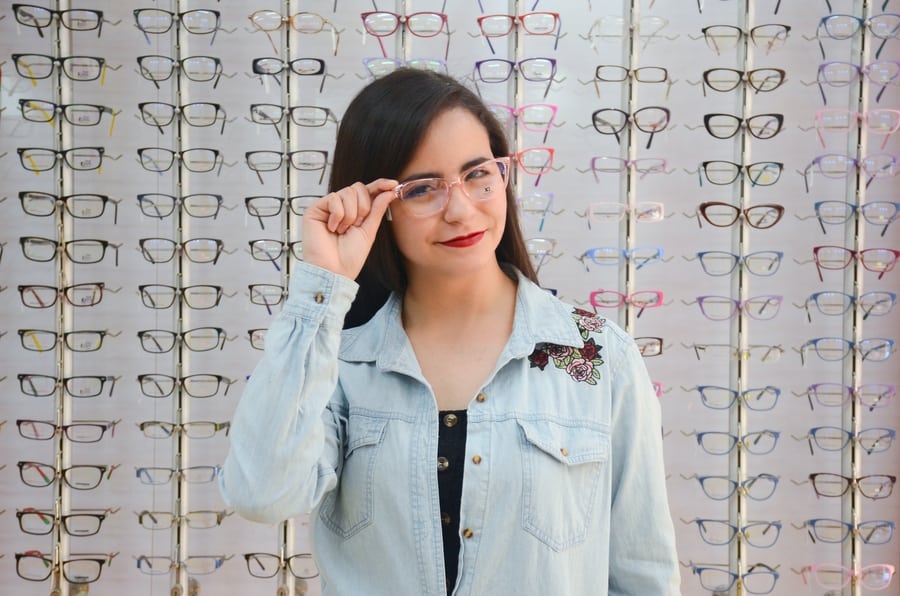
Make sure to dig deeper and find out if there are certain therapists and optometrists that are fully dedicated to therapy.
Given the choice, I always opt for the office that is all in on vision therapy. They usually have much better equipment and experience.
It is also important to establish whether they are specialized in treating adults with strabismus or very young children. This can be found by asking them (almost everyone says that they are so it isn’t always helpful). You can also check for reviews on google and Facebook or ask to talk to a previous patient.
If I can get a therapist or optometrist on the phone, I always ask about their opinion on David Cook and then I listen. David Cook is an optometrist and expert in treating strabismus, he wrote a book that has changed my life. (view here). If they don’t know him, that is a big red flag in my book.
Last: Learn if They Use the LATEST Technology
Technology isn’t everything in therapy, and sometimes the free space exercises are the most powerful ones, BUT I wouldn’t be where I am today without some of the amazing programs my vision therapy office uses.
Ask if they use syntonics, virtual reality, a 3D TV or other technology in their office and why or why not. Do they use HTS (Home Therapy Systems) or Optics trainer? How about VTS4?
There are many different options available, but it is good to see their opinion on using technology. I think a balanced approach is really helpful. The technology can really help the brain learn to use both eyes, but then it must be practiced in real space, not virtual.
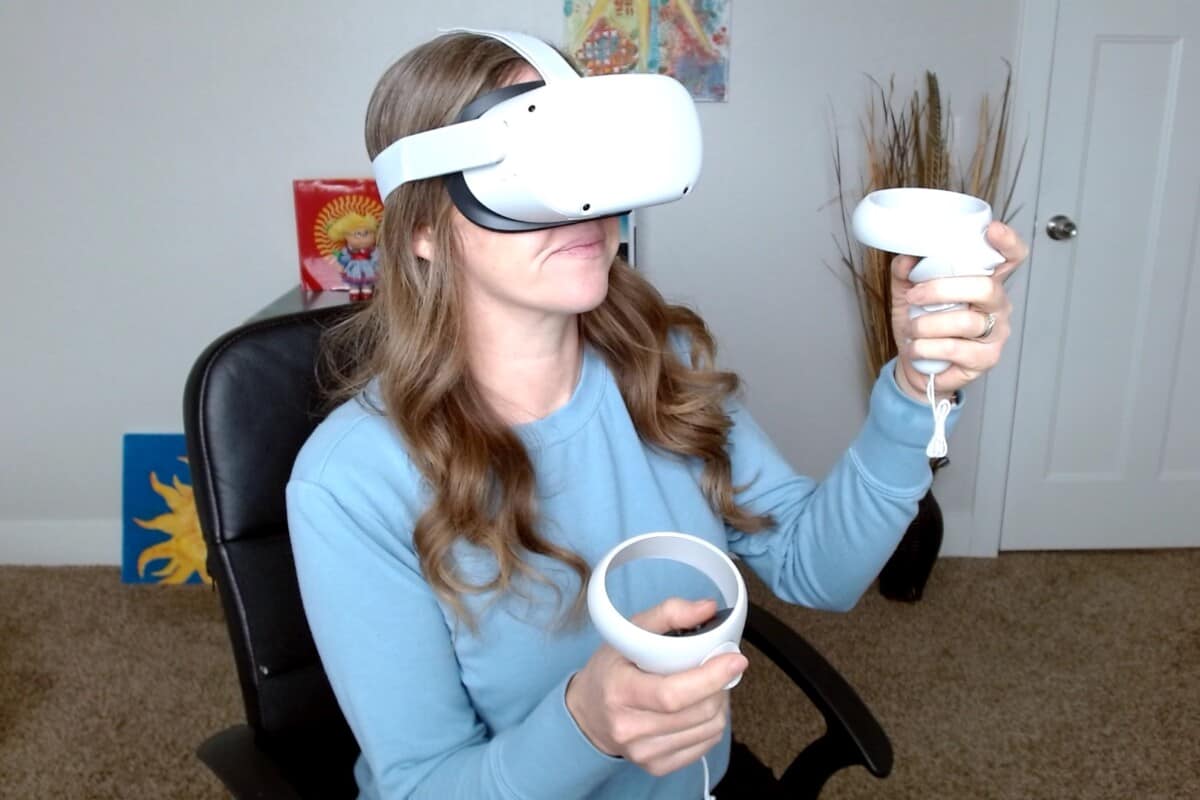
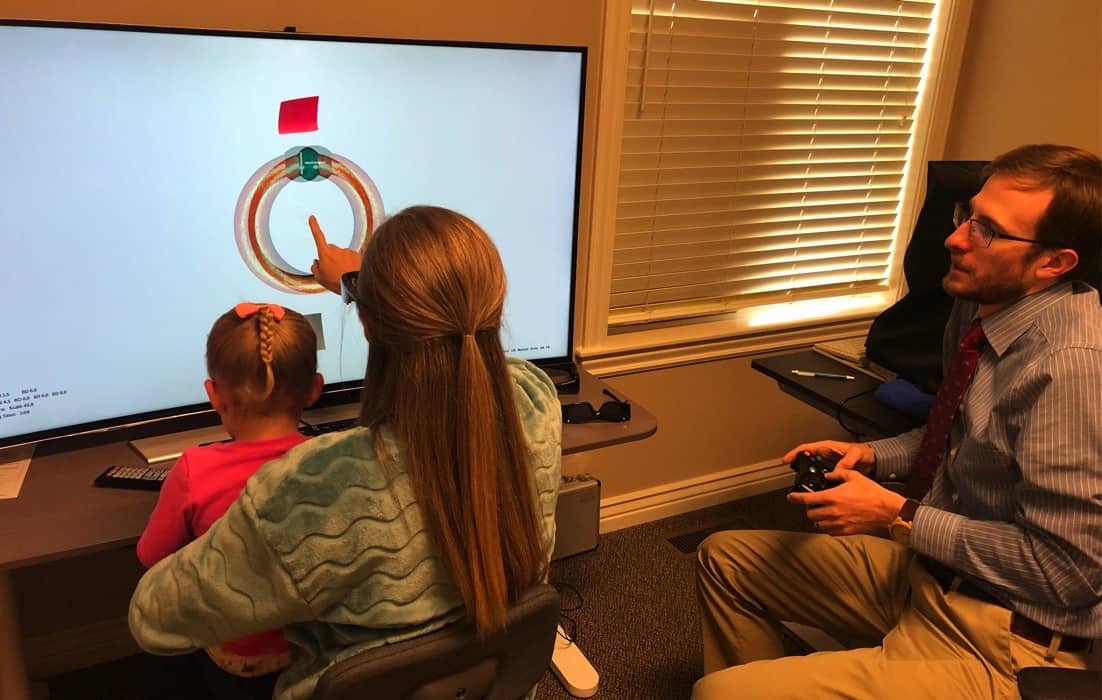
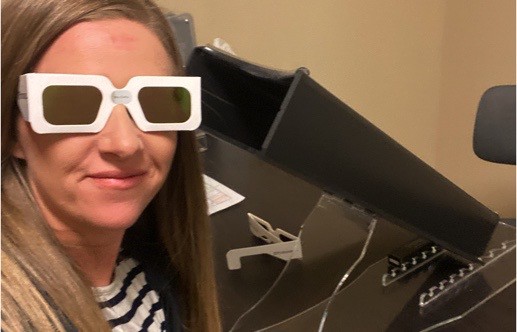
More established and experienced clinics generally use more technology than the ones that are just dabbling in therapy.
Overview
When I call, email and search through potential vision therapy office websites, there isn’t one specific thing I am looking for. There is give and take and you really need to get a feel for the type of office and therapy that is provided. You may find an optometrist who has been practicing for 40 years and uses no technology, but has amazing success or a fresh out of college optometrist who uses all the latest research and also has amazing success.
There is no one size fits all so it is important to make the phone calls and do your research.
If you want help with this there are a few options.
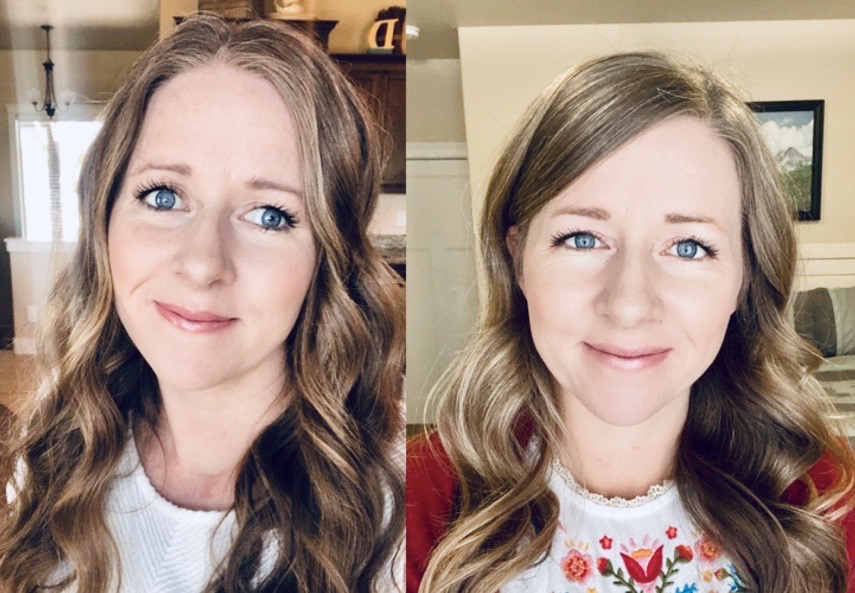
You can schedule a full 45-minute consult with me where I will do the research for you and help you understand the whole process and whether therapy is a good option. learn more here.
You can also go here and give me your info and I will send you an email with 1-3 vision therapy offices that could be a good fit for you in your area. For now this is free.
Vision therapy is worth it and it will become a turning point in your life, all you need to do is get started!
